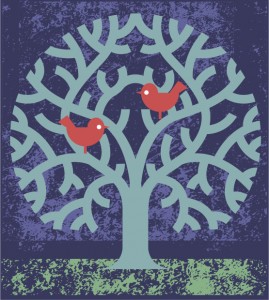Mark 4:26-34
This text is used for the Lectionary Year B on June 14, 2015.

“And he told them many things in parables…” Parables. We’ve heard them all our life. Mark says, “he did not speak to them except in parables.” While that is likely Markan hyperbole, it’s true that Jesus found parables to be a most powerful method of teaching. Even the ancient rabbis used stories to explain other stories. The power of narrative is all around us in our past, our present, and our future. We do well to engage the power of a story to give us the nuance and depth of communication the gospel requires.
Parables can be enjoyable texts to teach and preach, but the preacher must be responsible in his/her exegesis. While parables are powerful, they are also easy to misuse. Parables, like these we find in Mark, are often similes, e.g. The Kingdom of God is like…. But a parable can be considered almost any kind of comparison which helps the listener to better understand something that is by nature a mystery. Whatever form the parable takes, it works in the realm of the imagination and it speaks directly to the heart.
This particular parable is the only parable that is exclusive to Mark. Like other parables it hearkens to something most familiar to a 1st Century hearer: agriculture. The farmer has a responsibility and a contribution to make to the growth and harvest of the crop, but the farmer’s control has limits. Will there be enough rain? Too much? Enough sun? Too much? Will it be too cold? Too hot? Will the birds or other animals eat the seed or the finished product before harvest? Growing things is about a process. It doesn’t happen overnight. Some of the process of a growing crop is imperceptible to the casual or even the vitally involved observer. Growing a crop requires much hard work, much preparation, much persistence, and much patience. But the crop grows whether or not the farmer works it and its growth is beyond his/her understanding.
And all of this, of course, also applies to the Kingdom of God.
God will create a great outcome from the smallest and least of beginnings. God doesn’t need much at all to start with and when God is at work, the greatest of products, a great Kingdom, greater than all earthy kingdoms, will be the result. The Kingdom of God is in process, never to be stopped, never to be slowed, seldom to be understood, just like the growth of plants. While we stand by and partner with God in the process, mostly we just stand by amazed by the inevitability of it all. This has to give us great hope!
The Kingdom of God comes whether we see it or not, in ways we understand and in ways we don’t. Sometimes in numerical growth and maybe sometimes growth in the Spirit, subterranean growth that like an underground river silently and out of sight works its way through the geology until it springs forth from the rocks.
Ultimately the Kingdom of God, just like a crop, comes to completion. There comes a day when both God and his partner, the farmer, are through. The harvest comes. There is completion. There is rest.
Moving on to the mustard seed, there are many interesting things to consider. The parable itself explains that the mustard seed is the smallest of seeds. Mustard seeds would be the last kids picked in a pickup basketball game. All the other seeds would be picked before them. They are indeed the humblest of the seeds. In 1st century culture, the mustard seed was common parlance for the smallest thing there is. Jesus would not have to explain the symbolism of a mustard seed to a contemporary listener.
When the mustard seed grows up it “…puts forth large branches, so that the birds of the air can make nests in its shade.” This is a common metaphor for the great nations of that day. A great nation was commonly likened to a muscular tree with branches long and strong enough to shelter the birds of the air. The prophet Ezekiel made a similar reference (Ezekiel 17:22-24). That pericope happens to be one of the other lectionary texts for this particular Sunday in Year B. This strong tree, often a cedar, is symbolic of the ultimate triumph of the returning Davidic kingdom. The humble little mustard seed is all that God needs to create a mighty Kingdom. What a mystery this is to us: how God can take the smallest of resources and do the mightiest of works.
The Kingdom Jesus was talking about was looked down upon. It was overlooked and seemingly just a wart on the side of the powers of the day. Yet someday it would be great and powerful and dwarf those who once looked down on it.
Yet the mustard seed is an annual. It must be replanted every year. Thus the farmer is invited by a sovereign God to participate in this mysterious process of growth, whether a plant or a kingdom.
Mark tells us that he taught them in parables “as they were able to hear it.” No doubt even parables were not enough for some of his listeners. Deepest truths need a story, but for some even that’s not enough. Evidently not even for the twelve, to whom he explained in private. No doubt we should also be humble in our own listening and hearing. Not even those who were closest to Jesus always understood. Yet, the parable seems to have been Jesus’ “go to” method of teaching. That which is most difficult, most mysterious, most powerful, and most meaningful is most effectively shared from teacher to student, from speaker to listener, from preacher to congregant through the power of story. That which cannot be shared in any other way is best shared in story. That which can be shared in other ways, is most powerfully shared through story.
Jesus, the greatest teacher the world has ever seen, used stories to share the truth of his Kingdom. Why would we do differently?
 Dr. Charles L. Fuller
Dr. Charles L. Fuller
Minister for Congregational Life
Second Baptist Church, Little Rock, Arkansas
cfuller@2bclr.com
Tags: parables, seed, mustard seed, Kingdom of God
